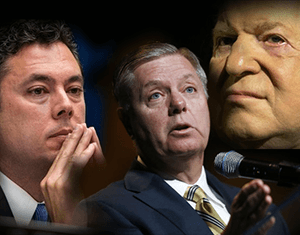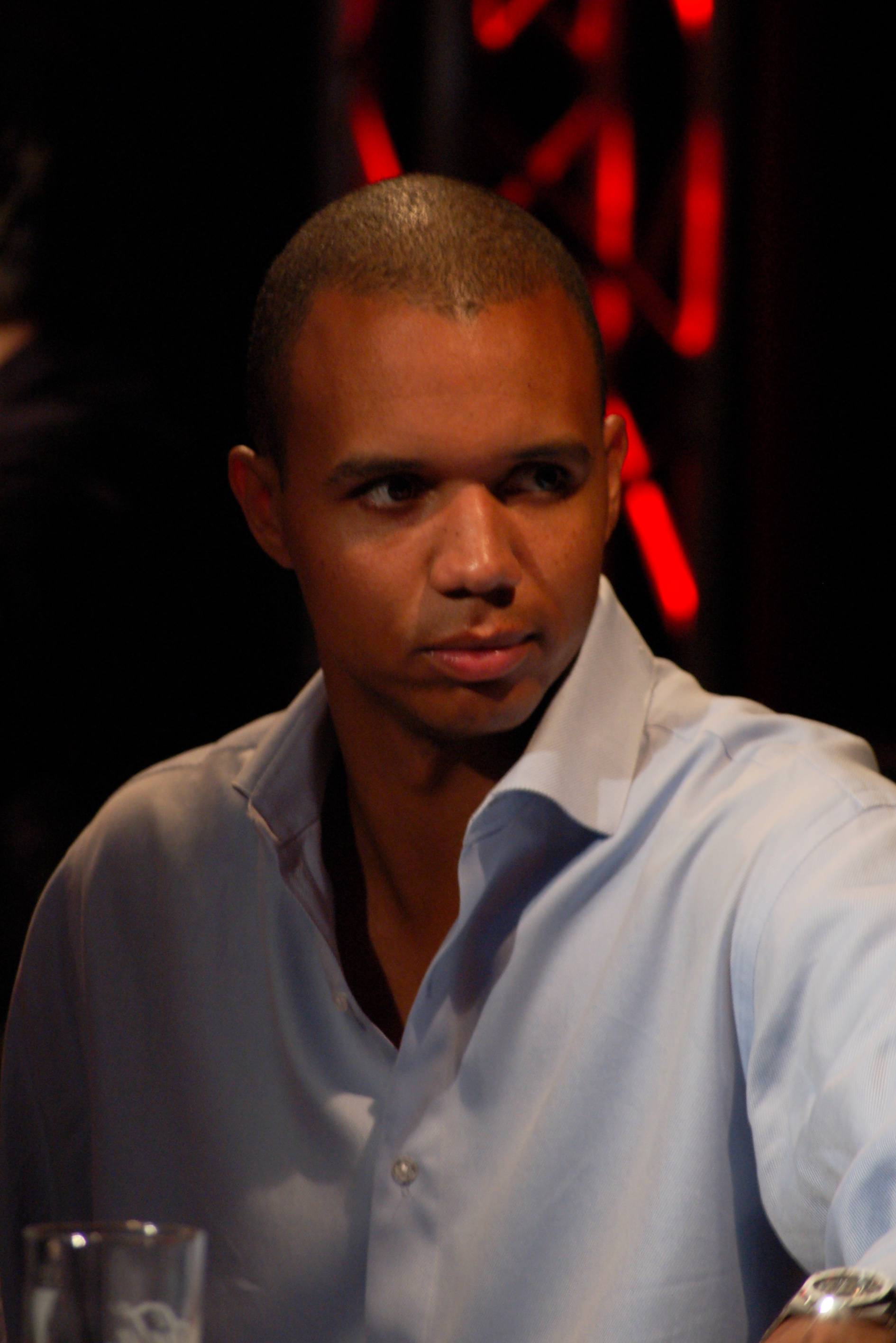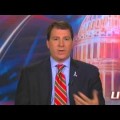
RAWA House Subcommittee Hearing Pits Fiction and Fear Against Facts in Online Gambling Battle

Although only Republican Representative from Utah Jason Chaffetz (left) was in attendance, the sentiments of Sen. Lindsey Graham and RAWA backer Sheldon Adelson were certainly on hand at this week’s House Subcommittee meeting on the controversial anti-online gambling bill. (Image: casinoscamreport.com)
The latest outing for the Sheldon Adelson-backed Restoration of America’s Wire Act (RAWA) took place on Wednesday in a House Subcommittee on Crime, Terrorism, Homeland Security, and Investigations pow wow.
In a meeting that might have been shorter than a subcommittee name so long it doesn’t even fit on the group’s own website header, it was all about accusations, grandstanding, and fire and brimstone, while facts were largely viewed as an inconvenient and unwelcome visitor.
For two hours, the House Judiciary Subcommittee, under the MC powers of Rep. Bob Goodlatte (R-VA), heard arguments from Rep. Jason Chaffetz of Utah and his political sympathizers about the need for a blanket ban on Internet gambling.
These arguments, according to a general consensus of industry experts, blurred the lines between fact and fiction for one solitary purpose: scaremongering.
Conjuring a Climate of Fear
Picking up on the tangent of fear that the act’s billionaire backer Sheldon Adelson has frequently fostered, those in support of RAWA were anxious to push angles of national security and personal protection to bolster their positions. In fact, such was the air of flippancy and misinformed arrogance among some of the witnesses that their statements bordered on the childish, thanks to cheap quips and silly rhymes.
“Click your phone, lose your home. Click your mouse, lose your house,” chanted Professor John Warren Kindt as he explained that it would be “impossible” to protect US citizens from an activity (yes, online gambling) that he likened to 9/11 and crack cocaine.
While Kindt wanted to make his dislike of gambling clear to the House, Chaffetz and Les Bernal, national director of Stop Predatory Gambling Foundation, seemed more interested in putting across their “facts” about the online poker industry.
One of the standout misnomers from Bernal was that online sites in regulated markets are “state-run,” when they are, of course, merely state-regulated and taxed. The sentiment was designed to imply that regulation of the industry would exploit the masses for taxation purposes or, as he put it, “no taxation by exploitation.”
Unpicking Misinformation and Lies
The fact that online casino and poker sites are no more “state-run” than brick-and-mortar venues seemed to be lost in the mire of conversation, as no one made a point of challenging Bernal on his claim.
Perhaps the reason why no one raised their hand to object was because previous calls for clarification had been shot down. Rep. Chaffetz was the man who pushed to have RAWA heard by the House, and he used his time in the spotlight to outline some of dangers associated with online gaming.
Unfortunately, two pieces of “evidence” offered by Chaffetz were deemed to be inaccurate or non-verifiable by the likes of industry expert Chris Grove. Listening intently to proceedings, Grove picked up Chaffetz’s reference to the FBI’s letters outlining the dangers of online gaming. Although Chaffetz was happy to let those in attendance believe the FBI’s concerns were connected to regulated igaming, the opposite is actually true.
In reality, the FBI’s 2013 letter addressing Congressman Bill Young’s concerns about money laundering and iGaming actually argued in favor of regulation.
Despite stating that online gambling could be used for criminal activity, the FBI also said that all Internet entities, even “well-regulated” ones “such as US banks”, are commonly “unwitting conduits for money laundering.”
The letter to Young also goes on to suggest that many of the techniques used by criminals to launder money could be “thwarted by a prudent online casino,” something which all regulated platforms in the US have done since going live.
The other rhetorical side-step Chaffetz performed during the hearing came after he claimed to have video evidence of 16-year-olds anteing up at an online poker site. When asked to produce said evidence, Chaffetz reportedly cut off the speaker and turned their question into a question.
Not wanting to let this point pass without further investigation, Chris Grove sent a direct tweet to Chaffetz asking for examples of the Utah resident gambling online and purchasing lotto tickets via their computer. At the time of writing, Chaffetz had not yet acknowledged the request.
Clarity Under a Cloud of Propaganda
Despite a cloud of propaganda threatening to derail the hearing and put the fate of online poker in danger, there were some patches of positivity throughout. John Pappas of the Poker Players Alliance (PPA), via a video segment called for an end to the needless discussions about a bill that violates the Tenth Amendment and serves to benefit one casino billionaire, Sheldon Adelson.
“Never in the history of US Internet gaming legislation has Congress ever considered overriding states’ rights to regulate online gambling within their own borders and yet Mr. Adelson’s bill would do just that. If an unelected billionaire is granted the power to rewrite history by imposing a federal prohibition, the future is bleak for every American who values their internet freedom,” said Pappas.
Also flying the flag for US iGaming was Parry Aftab, executive director of Wired Safety. A lawyer specializing in Internet privacy and security law, Aftab agreed that online gaming does have potential dangers, but informed the House that these threats come mainly from offshore, unregulated operators.
Moreover, she confirmed that in regulated states such as New Jersey, Nevada, and Delaware, there have been no reported instances of underage gambling or any other security issues online.
If there was one disappointment for online poker advocates, it was surely Andrew Moylan. Drafted in as a supporter of the industry by the PPA, Moylan appeared to hedge his bets during the hearing, suggesting that some tweaking of RAWA could be possible, but that expanding the power of the Wire Act was a “step too far” in terms of government control over state and individual liberties.
What’s Next for RAWA?
Many experts have suggested that the hearing was a marginal victory for the iGaming industry. An official tweet from the PPA declared the hearing a “win for our side” and useful for shining a spotlight on the “narrow understanding of our opponents.”
Pappas followed this up by saying that there seemed to be little “enthusiasm” for the bill, a reality that has been generally born out to date by its relative bipartisan unpopularity.
However, he urged everyone to remain “vigilant” of future threats posed by the likes of co-sponsor Senator Lindsey Graham, who is expected to push the RAWA once again later this year.















0 Comments